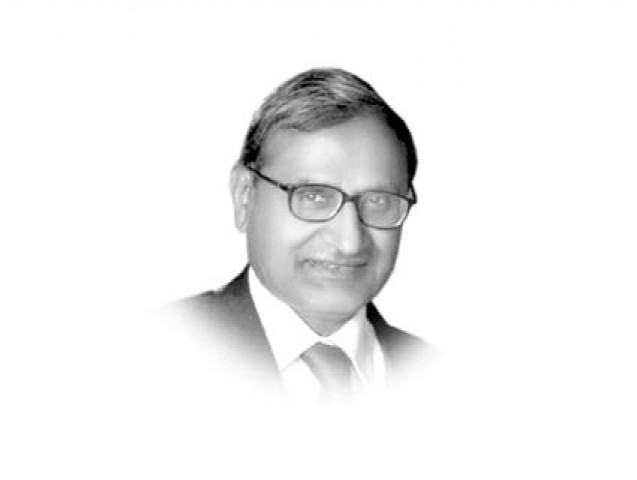Budgeting without reform
The political class is supposed to tax those who spend on infrastructure, but it has not understand how to do it.

Despite millions of borrowed dollars spent on its reform, it is now clear that the Federal Board of Revenue (FBR) itself had been against the reformed general sales tax (RGST) all along, telling the government that it could collect much more without it. Political parties in opposition have also bought this argument, saying that eliminating corruption in the FBR could yield an extra Rs300-400 billion. The FBR says it has identified 0.7 million persons who must pay taxes but are not doing so. Bridging this tax gap, rather than reform, is the new mantra. No more discussions are taking place on opportunities to improve the notoriously low tax-to-GDP ratio by widening the tax base through the RGST and by sensibly taxing wealth, property and agricultural income. There are only grave threats of a complete breakdown of social and economic order. Seizing upon opportunities and facing up to challenges requires political and economic leadership with mobilised public support. We have neither. The public is too busy making ends meet and the leadership is engaged in a ceaseless struggle for survival. Any social contract that may have existed, with people willing to pay for a state that in turn provides security and safeguards the livelihoods of its citizens, has broken down.
A case is being made that burdening a stagnating economy with more taxes, is not a good idea. In the past, when the going was good, new taxes were resisted for fear of derailing the economy. Wealth tax was actually withdrawn and the rate of corporate tax reduced in periods of high growth. Since it is not easy for governments to expand the tax base, borrowing with impunity is the result. If it is from abroad, well and good, as it is concessional or in the form of grants. If not, the printing press of the State Bank can come in handy. The persistent double-digit inflation that follows, however, seems to bother no one.
There have been episodes of healthy growth in the 60s, the 80s and the mid-2000s. These were associated with a combination of military governance, the presence of a conflict and assistance from the United States and its allies. In the period since 2007-08, there is a running conflict, some US assistance, but no direct military governance. The result? Growth has collapsed. This year it is estimated to be at 2.4 per cent — almost as much as the population growth, which means negligible growth in income per capita. More ominously, whatever growth is there is not from the real sectors of agriculture and industry; 2.2 percentage points out of 2.4 per cent were contributed by the services sector. Within services, and also as a whole, the largest contribution came from public administration and defence. In other words, raise the salaries and spend more on defence and generate spurious growth. Private capital formation, normally the largest source of growth, actually declined by 3.1 per cent.
This is the economic backdrop for the next budget. No institution is able to do what it is tasked for. The military had failed to defend territory in the past; now, it is unable to defend itself. Internal security forces have never been able to defend the people. Now, they are unable to defend themselves. Yet, the budget will be allocating more, a lot more, for defence and internal security. The political class is supposed to tax those with the ability to pay and spend on infrastructure, energy and food security. But it has never ruled long enough to understand how to do it. When the finance minister says the budget will reflect the aspirations of the people, he is referring to aspirations as articulated by the political class. One will see the programmes of the MNAs, senators and the prime minister and the president protected. The people will hear the good news of a tax-free budget, while the experience during the year will be the same, in the form of spiralling inflation.
Published in The Express Tribune, May 28th, 2011.













COMMENTS
Comments are moderated and generally will be posted if they are on-topic and not abusive.
For more information, please see our Comments FAQ